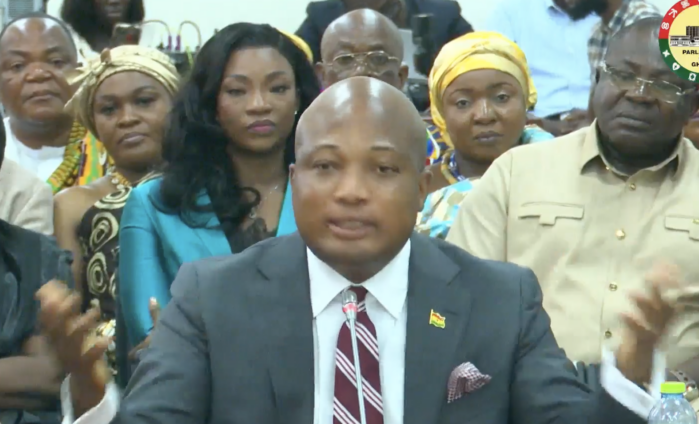
Audio By Carbonatix
Minister nominee for Foreign Affairs, Samuel Okudzeto Ablakwa, has pledged to use foreign policy as a tool to ensure Ghanaians abroad have dignified work.
Human rights organisations advocate for safe workplace conditions for all, particularly women, promoting the rights of women workers around the world.
In Ghana, there have been concerns about reports of ill-treatment and horrible experiences some Ghanaian women seeking jobs in the United Arab Emirates in particular encounter.
Addressing this issue before Parliament’s Appointments Committee on Friday, January 31, Mr Ablakwa outlined his vision to address the problem through strategic bilateral agreements.
“One of the priority areas that the President tasked me to work on is how the Foreign Ministry can be re-positioned to help resolve the unemployment crisis in our country. According to the Ghana Statistical Service, unemployment has risen from 8.6% in 2016 to 14.7% currently," he stated.
Mr Ablakwa emphasised the need to turn labour migration into a structured and beneficial system for both the workers and the nation.
“We need to make sure this migration that is going on because of the search for employment benefits, must be regulated so that it becomes a win-win situation,” he noted.
He cited countries like Cuba and Indonesia, which have successfully leveraged foreign policy to secure employment for their citizens abroad. “They sign bilateral agreements with other countries and export labour legally, ensuring that workers rights are protected while also generating revenue for the country,” he explained.
Mr Ablakwa assured that under his leadership, the Foreign Ministry would prioritise economic diplomacy in a way where bilateral agreements will be signed.
“There are many countries looking for Ghanaian nurses, teachers, professionals, artisans, and domestic workers. Why can’t we take advantage of that to solve our unemployment crisis?” he asked.
He also highlighted the need to protect Ghanaian workers from exploitation, particularly in the Gulf region. “When these receiving countries know that the labour they have received is not from some clandestine agency engaged in human trafficking, they will be more mindful of how they treat these workers,” he stressed.
He concluded by promising to formalise and aggressively pursue these arrangements.
“Expect that we will formalise these arrangements and be very deliberate in creating jobs for our young people. We can make sure that brain drains become brain gain.”
Latest Stories
-
Ghana is rising again – Mahama declares
2 hours -
Firefighters subdue blaze at Accra’s Tudu, officials warn of busy fire season ahead
3 hours -
New Year’s Luv FM Family Party in the park ends in grand style at Rattray park
3 hours -
Mahama targets digital schools, universal healthcare, and food self-sufficiency in 2026
3 hours -
Ghana’s global image boosted by our world-acclaimed reset agenda – Mahama
3 hours -
Full text: Mahama’s New Year message to the nation
3 hours -
The foundation is laid; now we accelerate and expand in 2026 – Mahama
4 hours -
There is no NPP, CPP nor NDC Ghana, only one Ghana – Mahama
4 hours -
Eduwatch praises education financing gains but warns delays, teacher gaps could derail reforms
4 hours -
Kusaal Wikimedians take local language online in 14-day digital campaign
5 hours -
Stop interfering in each other’s roles – Bole-Bamboi MP appeals to traditional rulers for peace
5 hours -
Playback: President Mahama addressed the nation in New Year message
5 hours -
Industrial and Commercial Workers’ Union call for strong work ethics, economic participation in 2026 new year message
7 hours -
Crossover Joy: Churches in Ghana welcome 2026 with fire and faith
7 hours -
Traffic chaos on Accra–Kumasi Highway leaves hundreds stranded as diversions gridlock
7 hours

